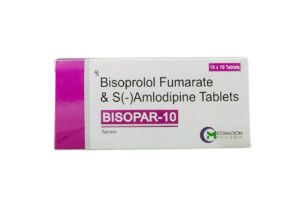Usage of Silimed D
-
Moderate to severe BPH with enlarged prostate (>30 mL)
-
Patients with both symptoms (LUTS) and increased prostate size
-
For those at risk of BPH progression or urinary retention
-
Long-term management to prevent acute urinary retention (AUR) and need for surgery
Common Side Effects
-
Retrograde ejaculation (Silodosin-related)
-
Decreased libido
-
Erectile dysfunction
-
Breast tenderness or enlargement (rare)
-
Dizziness or postural hypotension
-
GI discomfort (nausea, mild diarrhea)
Side effects are generally dose-dependent and reversible on discontinuation.
Precautions
-
Women and children should not handle crushed or opened capsules (Dutasteride may absorb through skin)
-
Use with caution in hepatic impairment
-
Not recommended in severe renal impairment (CrCl <30 mL/min)
-
May mask rising PSA levels—PSA testing must be doubled for accurate prostate cancer screening
-
Intraoperative Floppy Iris Syndrome (IFIS) risk in patients undergoing cataract surgery – inform the surgeon
-
Avoid blood donation during and for 6 months after stopping Dutasteride
Drug Interactions
-
CYP3A4 inhibitors (e.g., ketoconazole): May increase Silodosin levels
-
Alpha-blockers: Do not combine with other α-blockers
-
Phosphodiesterase-5 inhibitors (e.g., tadalafil): Caution—risk of hypotension
-
Finasteride/Dutasteride: Avoid duplicate 5-ARI therapy
-
Antihypertensives: May enhance hypotensive effects
Dosage and Administration
-
One capsule once daily, preferably with food
-
Swallow whole—do not crush or open
-
Onset of action:
-
Silodosin: within 2–3 days (symptom relief)
-
Dutasteride: within 2–4 weeks (prostate shrinkage), full effect by 3–6 months
-
Storage
-
Store below 25°C, in a dry, cool place
-
Keep out of reach of children
-
Avoid exposure of capsule contents to skin
Patient Counselling Tips
-
Take at the same time each day with meals
-
Inform about possible ejaculation disorders—harmless and reversible
-
May take several weeks to months for full prostate-shrinking benefits
-
Do not stop abruptly without consulting your physician
-
Inform your doctor about any plans for blood donation or eye surgery
-
Report signs of breast enlargement or nipple discharge






